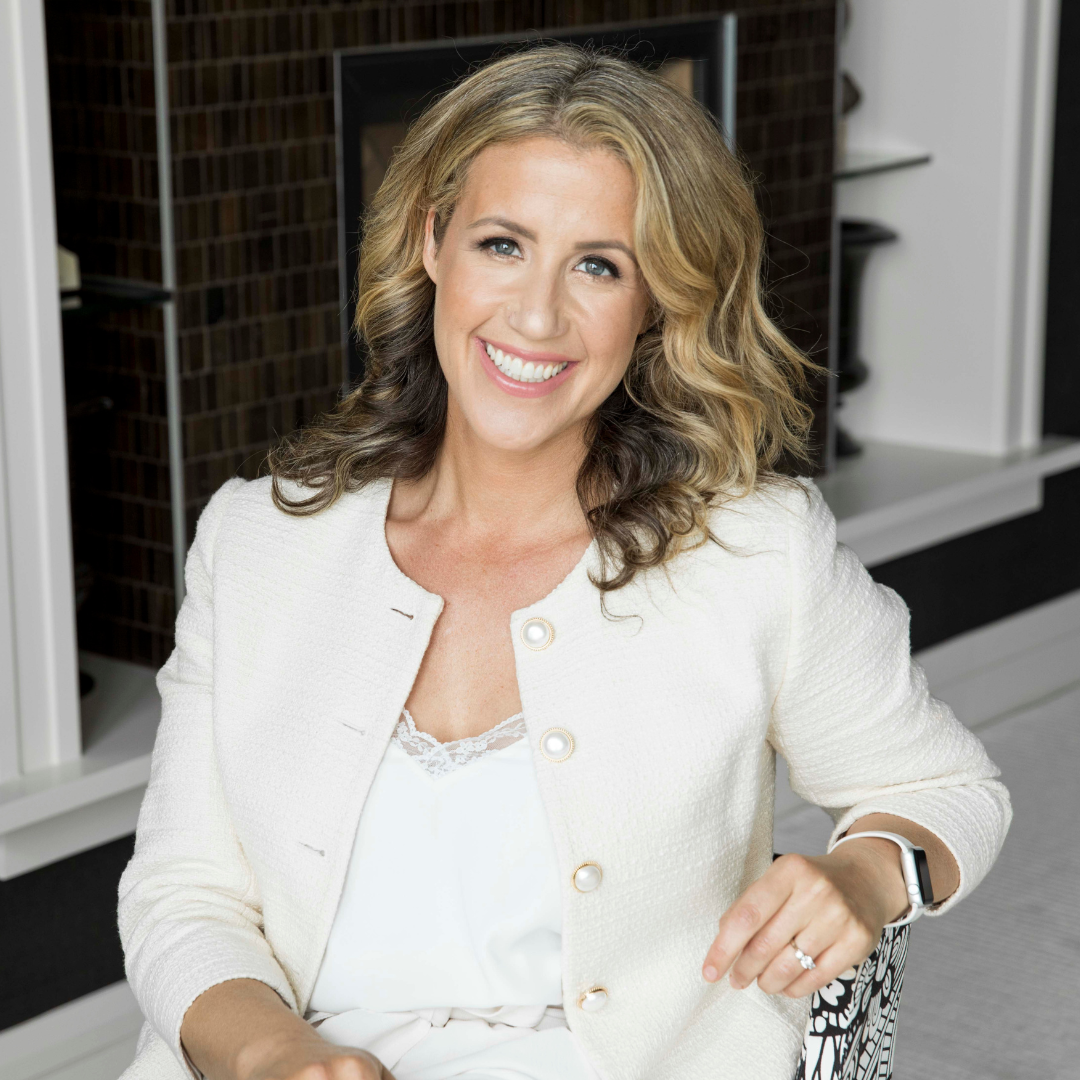Few…
Cramping the Status Quo: Evolving Bodies, Parenthood, and Leadership
As women’s bodies and lives evolve, so must the systems that support their career growth.


By Kaitlin Traynor
A career path is often defined by milestones. Projects and promotions, impact and initiative, results and recognition. But what happens when our bodies and personal lives evolve alongside our careers? Major life changes can shake any career. Parenthood is one of them, but women also navigate transitions related to fertility, maternity leave, and peri/menopause — all of which intersect with professional ambitions, confidence, and opportunities for leadership.
For Jen Murtagh, motherhood turned everything on its head. “Suddenly, I was trying to navigate the complexity of reconciling my career goals with my family responsibilities. My career was really fulfilling for me, but I saw myself struggle for years.” Jen’s time as chief strategy officer at the BC Women’s Health Foundation made her acutely aware of the barriers women face in the workplace, but her firsthand experiences only served to heighten her awareness of the broader, systemic challenges that affect thousands of working women across Canada. Inspired by her experience, Jen created Maturn, a company dedicated to supporting and retaining working women as they navigate life transitions.
The Motherhood Penalty
Key findings from a national survey led by Maturn highlight one of the clearest examples of how life changes impact career outcomes: maternity leave and motherhood.
Nearly half of working mothers in Canada reported dissatisfaction with the support they received from their employer during maternity leave, while 70 per cent note that gaps in workplace policies leave their needs unmet. Alarmingly, one-third considered leaving their jobs due to inadequate support, highlighting the critical link between support and retention.
“The years surrounding maternity leave represent the largest single point in which woman off-ramp from organizations,” Jen explains. “And it’s not always because those women want to be stay-at-home moms.” The lack of flexibility and support amplifies anxiety around returning to work, particularly when women feel they’re expected to perform at the same level they did before growing their family. The journey itself can also be quite isolating, especially when it comes to physical changes. Common conditions like post-partum incontinence can persist for years, adding another quiet layer of stress to the transition. For women who are struggling to feel confident at work, this can have a huge effect on their daily comfort.
Four Key Exit Points
Jen has found that there are four key exit points that women are more likely to leave their careers: fertility journeys, maternity leave, motherhood, and perimenopause/menopause.
“We’re still operating inside outdated systems and structures that fail to account for the lived realities of women,” she stresses.
Some of the most surprising barriers, she notes, come not from men but from other women. “We see this attitude of, ‘Oh, well it was hard for me, so why should it change now? I took 3 months maternity leave, and I was fine.’”, observes Jen. These internalized biases can reinforce systemic challenges, making it harder for organizations to implement changes.
Support and Solutions
For Jen, addressing these challenges isn’t just about identifying problems; it’s about creating solutions that work in real life.
“Organizations must recognize that if they want to be truly inclusive, we need to seek more equitable programs that support women to stay at work,” she says. “If we want women to stay and thrive, support can’t be an afterthought.”
At Maturn, the focus is on actionable strategies that empower both employees and organizations. Flexibility is key, whether through phased returns from maternity leave, remote work options, or individualized career planning. Open communication, surveys, and employee feedback create a productive dialogue. Structured transition plans help reduce the anxiety women often feel when stepping away or coming back to work.
Jen also points to the importance of mentorship and allyship. Women navigating life transitions benefit immensely from advocates who understand the pressures they face. “Sometimes it’s just one conversation, one champion, that makes the difference between a woman leaving and a woman staying,” she notes.
Looking to the Future
When organizations implement this support, the impact is transformative.
“If we get it right, we’ll see stronger leadership pipelines with more women in senior positions — and a culture where women feel like they can show up as their whole selves at work without having to compartmentalize their lives,” Jen says.
That sense of psychological safety around life transitions isn’t just good for people; it’s also good for business. Research consistently shows that when employees feel supported, they’re more engaged, innovative, and productive.
“The ripple effects are huge,” Jen says. “When organizations embrace this thinking, everyone thrives.”
To help start this ripple effect, Jen’s team focuses on outcomes, not hours clocked, operating with flexibility to allow work and life to come together in harmony. For her, the future of leadership is grounded in trust and empathy. “It’s hard to be vulnerable, but you shouldn’t assume anyone knows what you’re going through,” she says. “Ask for what you need. Change starts with honest conversations.”
This story is presented in partnership with TENA, a brand that champions candid conversations about women’s health, visibility, and equity. To learn more about how to help women thrive, visit tena.ca.
Pour…
Women of Influence+ Announces Finalists for 2025 RBC Canadian Women Entrepreneur Awards
By…
Thayde Olarte, SVP at Scotiabank, on Building a Career with Purpose and Precision
By…
Executive Presence, Revisited: How Leadership Is Being Felt, Not Just Seen
By…
How Embracing the Unexpected Shapes This Scotiabank Executive’s Leadership
Nancy…
